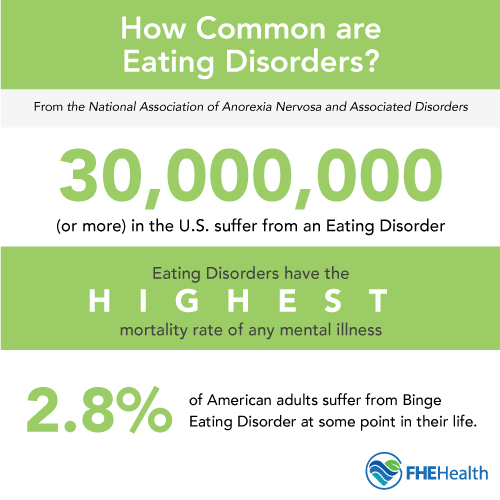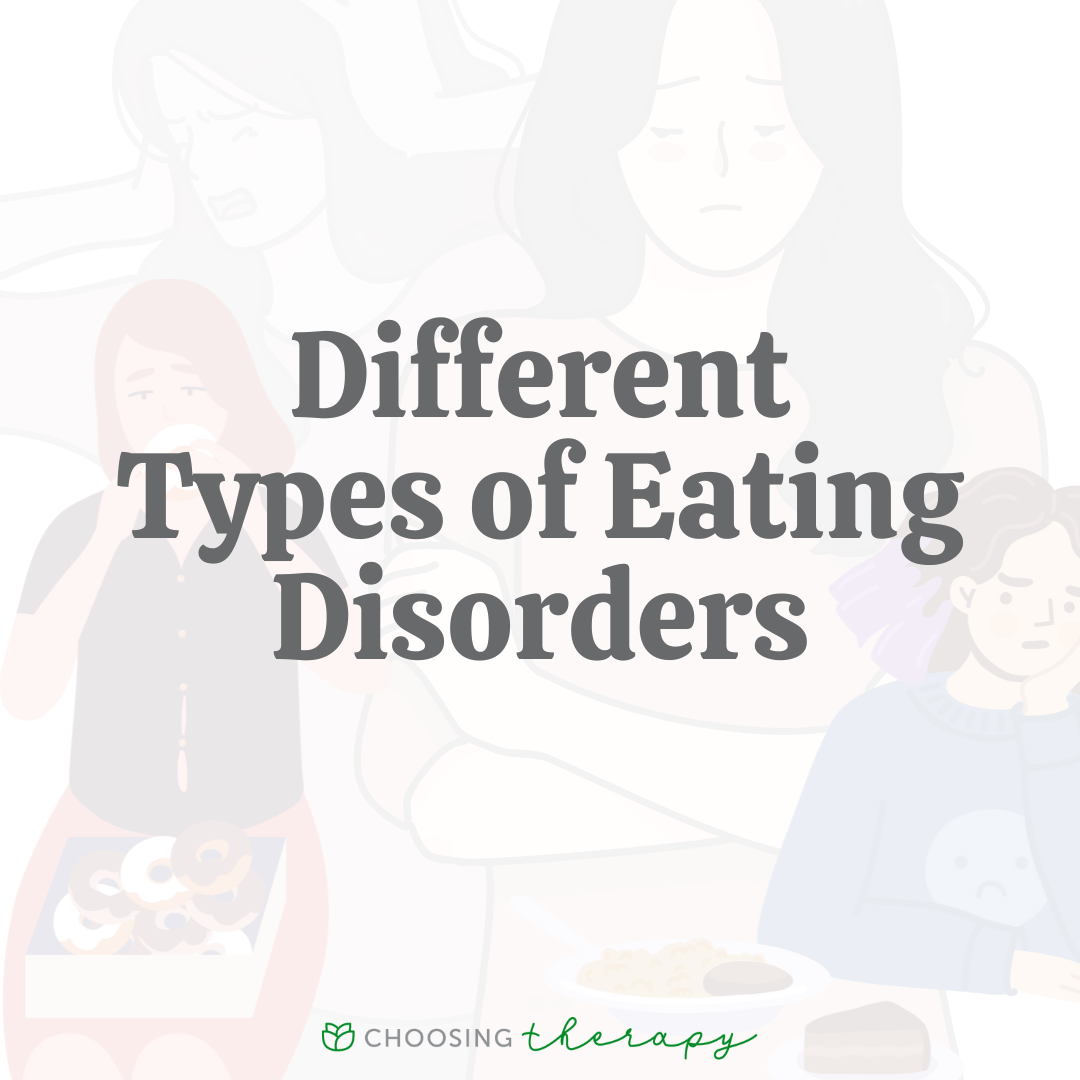The Of Eating Disorder Recovery
Wiki Article
The Ultimate Guide To Eating Disorder Recovery
Table of ContentsSome Known Details About Eating Disorder Recovery Eating Disorder Recovery Things To Know Before You BuyThe Eating Disorder Recovery StatementsHow Eating Disorder Recovery can Save You Time, Stress, and Money.Unknown Facts About Eating Disorder Recovery

While many people make a factor to be conscious of the ingredients and sourcing of their food, orthorexia can become destructive to the individual's health. Ultimately, certain foods or whole groups are gotten rid of from the person's diet regimen; they might additionally start to consume over the ingredients in their foods, investing hours each day preparation meals.
Food active ingredients could additionally come to be the person's just subject of discussion. Orthorexia is also a common co-occurring condition linked with OCD.
The Best Guide To Eating Disorder Recovery
With this problem, an individual will purely avoid certain foods to the detriment of their health - eating disorder recovery. Unlike orthorexia, nonetheless, the avoidance of certain foods isn't driven by notions of the food's healthfulness or purity, yet instead by a serious hostility to the food's taste, appearance, or smell (although problems about putridity or food poisoning may also exist).With time, an increasing number of foods come to be illogical, causing an exceptionally limited scheme of appropriate foods. Formerly referred to as selective eating problem, ARFID often starts in childhood and also gradually aggravates in time. It's fairly usual for youngsters to be "choosy eaters" and also everyone has choices for what they consume, but if it comes to be compulsive and detrimental to an individual's health, it requires a check-in with an eating condition therapy expert.
Additionally like orthorexia, an unfavorable or distorted body photo is not always a reason for the condition. ARFID is generally dealt with utilizing talk therapy and cognitive retraining such as Cognitive Behavioral Therapy (CBT). Unlike most eating problems which usually first existing throughout adolescence, rumination condition is most common in infancy and early childhood years, although it can continue right into their adult years.
More About Eating Disorder Recovery
Generally, they do not experience stress and anxiety or disgust when throwing up, neither do they appear to make an initiative to throw up (as seen in bulimia nervosa). Rumination problem is frequently a response to an illogical fear of health problem brought on by eating, although its reasons are less well-understood than various other eating conditions.

Orthorexia is a type of consuming condition, still unacknowledged in the DSM, in which an individual comes to be stressed with "healthy his comment is here eating." While many individuals make a factor to be familiar with the active ingredients and sourcing of their food, orthorexia can become detrimental to the individual's health. Orthorexia triggers people to determine specific food or food groups as "correct," "healthy and balanced," or "pure." Ultimately, specific foods or entire groups are removed from the individual's diet regimen; they may likewise begin to stress over the active ingredients in their foods, investing hours daily preparation meals.
Eating Disorder Recovery for Dummies

With this disorder, an individual will purely prevent certain foods to the detriment of their wellness. Unlike orthorexia, nevertheless, the evasion of certain foods isn't driven by concepts of the food's healthfulness or pureness, but instead by an extreme aversion to the food's flavor, texture, or smell (although problems about wasting or food poisoning might additionally be present).
In time, a growing number of foods end up being illogical, resulting in an extremely limited scheme of acceptable foods. Formerly called discerning eating condition, ARFID usually begins in youth and considerably aggravates in time. It's relatively typical for kids to be "picky eaters" as well as every person has preferences click for more of what they eat, however if it becomes uncontrollable and also harmful to a person's wellness, it calls for a check-in with an eating condition therapy specialist.
Getting The Eating Disorder Recovery To Work
Like orthorexia, a negative or altered body image is not always a cause of the condition. ARFID is normally dealt with utilizing talk therapy as well as cognitive re-training such as Cognitive Behavior Modification (CBT). Unlike a lot of eating disorders which generally initially existing throughout teenage years, rumination disorder is most common in early stage and also early childhood, although it can persist right into the adult years.Usually, they do not experience stress and anxiety or disgust when regurgitating, nor do they show up to make an effort to throw up (as seen in bulimia nervosa). Rumination problem is typically a reaction to an irrational worry of disease created by consuming, although its reasons are much less well-understood than various other eating disorders.
Rumination disorder is listed in the DSM-V. Diabulimia is noted as one of the lots of unspecified eating conditions under the catchall term OSFED (Various other visite site Specified Feeding r Consuming Disorder).
Report this wiki page